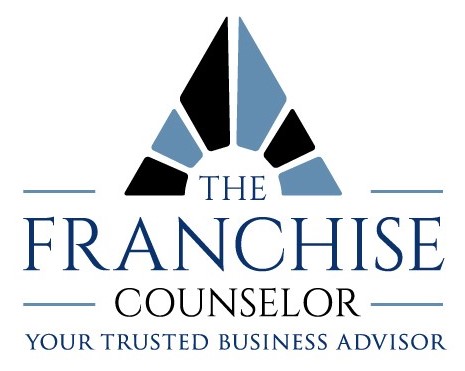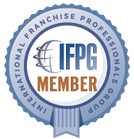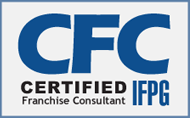
Kevin Baron 7.7.22
Is Business Ownership for Me?
When I was studying to obtain my undergraduate degree in business, there were two common things that most students said.
- Someday I’m coming back here to conduct guest lectures and/or teach here at the university.
- At some point, I want to start my own business.
Studies show that #1 rarely happens, and I can tell you that #2 also rarely happens. I’ve talked to hundreds of people throughout the past several years about business ownership and unfortunately, life’s circumstances usually prevent it. A few common reasons that keep people from starting a business:
- People become more risk averse as they start families.
- As employees climb the corporate ladder, they build a lifestyle that keeps them being able to walk away from their current income.
- They are bound by “golden handcuffs,” large payments/bonuses that vest at a later date.
- The timing never seems right.
- They find something they love to do and no longer desire to start a business. That’s actually a great reason!
When I have the opportunity to speak with people who are considering business ownership, a few common motivations for inquiries are:
- I’ve plateaued in my career.
- I have the capital and want to pursue my passion.
- I’m sick of making money for everyone else, I want to be the boss and owner.
- I’m ready for a different professional role, but my salary has priced me out of going to other companies.
- I’ve recently lost my job and don’t want to make myself vulnerable to layoffs again.
- I’m not ready to retire but am finding myself without a job.
- I’m an empty-nester and am ready to do something for myself.
- Several of my colleagues recently got downsized. While I kept my job, I don’t want to vulnerable in the future. I want to start a side-business that I can eventually join full-time.
- I’m looking for alternative investments.
Owning a business is not for everyone. Most people envision business ownership as requiring an 18-hour workday, 7 days a week. While this is true for some businesses, many don’t require that amount of commitment. Another common misconception is that owners will be managing minimum-wage employees. While some businesses require this, there are many other opportunities. Taking a step back and assessing your professional goals, your skill set, your passions, and the type of lifestyle you want can help to ensure you achieve the right opportunity.
I recently worked with a very successful corporate executive who lives in Charlotte, NC. He was interested in starting a business part-time with the goal of migrating to the business full-time. He called me one Monday morning extremely excited. He said, “Kevin, I found a concept while traveling this weekend that will do great next to the Charlotte Speedway!” He then told me it was an automotive-related restaurant. My response was, “Two weeks ago, you told me that you hate working with blue-collar employees. While I’m sure it will perform well, you’ll be miserable.” The moral is to find something that will be enjoyable AND successful. You probably won’t start your own business multiple times in your life. You should make it count.
There are several ways to start a business with various costs. However, two common themes when starting a business are risk and independence. Here are a few ways to get started in business and some items to consider.
Start a completely new independent business from scratch
If you’re short on capital or credit, this may be your only option. In this scenario you’ll have an incredible amount of control and independence; however, you’ll have very little infrastructure. If you’re the type of person who is extremely creative, enjoys building things like customer support, employee programs, marketing programs and have the desire for complete control, this may be a great option.
Acquire an existing independent business
Some advantages to this approach are knowing the existing and historical cash flow of the business and having the independence to make future decisions. (Future decisions is an important distinction. You obviously don’t get to decide who the existing employees are, what location or equipment is leased, and most other prior commitments.)
Some things to consider that may cause concern is the seller’s ability and willingness to train you on the business. Has the seller ever trained anyone before? Another potential issue is reliance on employees who likely know more about the business than you. And finally, why is the business for sale?
Start-up a business as part of an established franchise system
In franchising there’s a saying that you’re in business for yourself, but not by yourself. A clear benefit of franchising is that the training you receive is from professionals who aren’t going away, unlike a former business owner. Starting a franchise business allows you to pick your staff, location, equipment, vehicles, etc. However, the franchisor may have some guidelines regarding some of those decisions. You are sacrificing some control for the benefit of the training, IT infrastructure, operational structure, marketing programs, and several other items. However, there are certain things that franchisors CANNOT require you to do. They can’t tell you who to hire/fire and how much to pay them, amongst many other items.
One distinct difference between starting a franchise business vs. an independent business is your ability to evaluate the financial performance of other franchisees prior to agreeing to start your business.
Purchase an existing business that is part of a franchise system
Much like purchasing an independent business, you have the advantage of knowing the existing and historical cash flow of the business. While you’ll have some of the advantages of the start-up franchisees outlined, you’ll be inheriting employees, locations, and often equipment of the previous owner. You’ll also be part of the franchise system which has advantages but will limit some of your independent decisions.
One important thing to consider when buying an existing franchise business vs. an existing independent business is the motivation for selling.
Selling an independent business – When it comes time to exit an independent business, the main option the owner has is to sell the business on the open market. This is often for legitimate reasons like retirement, relocation, etc.
Selling a franchise business – When someone is selling a business that is part of a franchise system, existing franchisees and the franchisor have the first option to buy the business. This often results in the insiders buying the healthy businesses while the rest go on the open market.
So, is business ownership for you? I certainly don’t expect this article to be the solution to a very complex question; however, I hope it provokes thought and answers some questions. Regardless of your decision, I wish you the best in your personal and professional lives. Please let me know if I can ever be of assistance.
About the author: Kevin Baron is a graduate of the University of North Carolina-Chapel Hill’s MBA. After spending several years in corporate-America and in franchise ownership/operation, he is now President and owner of The Franchise Counselor.
To sign up for Blog and newsletter updates, click here:


